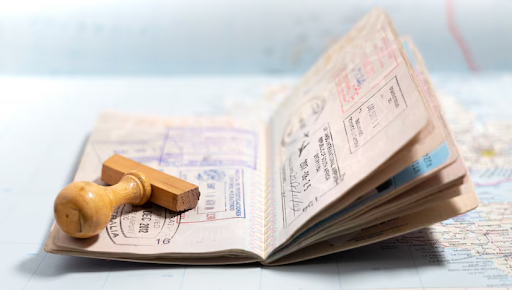Applying for Permanent Residency (PR) in Singapore is a major milestone for many expatriates who have grown to call this island nation home. However, receiving a rejection letter can feel like hitting a wall. While the disappointment is understandable, rejection doesn’t mean the door is closed forever. You may still have an opportunity to appeal and possibly reverse the outcome.
This guide walks you through how to appeal for PR rejection in Singapore, step by step, with practical advice on increasing your chances the second time around.
Understanding the PR Rejection
Why PR Applications Are Rejected
Before launching an appeal, it’s vital to grasp why applications are turned down in the first place. Although rejection letters rarely provide specific reasons, they generally stem from:
- Lack of economic contribution (e.g., low salary or employment instability)
- Weak social integration (limited community ties or no family presence)
- Insufficient residency period
- Incomplete or inconsistent documentation
- Highly competitive quota and demographic considerations
Understanding these general reasons can help tailor your appeal appropriately.
Should You Appeal or Reapply?
Many people confuse appealing a rejection with submitting a fresh application. Here’s the key difference:
- Appealing means responding to a rejection with new supporting information or clarification, typically within 6 months of the rejection date.
- Reapplying is submitting a completely new application, which is usually advised after 6 months when your profile has significantly improved.
Appealing is worthwhile if you can address shortcomings or present new supporting evidence. Otherwise, waiting and strengthening your profile may be more effective.
When to File Your PR Appeal
Timing is critical. An appeal should be submitted soon after the rejection, ideally within one to three months. This period shows your proactive intent, yet still allows time to gather updated documents or achievements. Appeals submitted beyond six months are typically ignored.
Remember: don’t rush your appeal just to meet a timeline. If you don’t have meaningful updates to your profile, consider postponing and improving your case instead.
Crafting a Strong PR Appeal Letter
Structure and Tone
Your appeal letter is the centerpiece of your appeal. It must be formal, concise, and factual, avoiding overly emotional or generic pleas. A persuasive appeal demonstrates clear logic, respect for the decision, and a commitment to contribute meaningfully to Singapore.
Suggested structure:
- Introduction: Acknowledge the rejection and state your intent to appeal.
- Clarify any misinterpretations: If any information may have been misunderstood or omitted, provide clarification.
- Highlight new developments: List updates in income, job title, family status, community activities, or education.
- Reinforce your commitment: Mention your integration efforts and long-term plans to settle in Singapore.
- Conclusion: Politely request a reconsideration and express appreciation.
Example Opening Statement
“I am writing this letter to respectfully appeal the recent decision regarding my Permanent Residency application, dated [insert date]. I am grateful for the opportunity to live and work in Singapore and would like to present new information that I hope will support a positive reconsideration.”
Important Documents to Support Your Appeal
An effective appeal isn’t just about words—it must be supported with relevant, updated documents. Here are some examples that can strengthen your case:
- Latest salary slips (especially if your income has increased)
- Updated Notice of Assessment from IRAS
- New educational qualifications or certifications
- Updated employment letter indicating promotion or extended contract
- Volunteering certificates or community involvement
- Family documents (e.g., marriage, children born in Singapore)
- Tenancy agreement or property ownership to show long-term plans
Ensure all documents are clear, translated into English (if needed), and presented in a well-organized file.
Tips to Improve the Strength of Your Appeal
1. Emphasize Social Integration
Show you are more than just a working professional. Mention your involvement in local activities such as:
- Community volunteering
- Participation in cultural or religious events
- Enrolment in local language or integration courses
2. Demonstrate Career Growth
If you’ve had a recent promotion, salary increase, or taken on significant responsibilities at work, these are key signs of stability and value.
3. Show Commitment to Long-Term Residency
Evidence of long-term living arrangements, such as family planning, property rental or purchase, or schooling for children in Singapore, can add depth to your appeal.
4. Avoid Overloading with Irrelevant Information
Only include documents that add clear value to your appeal. Avoid cluttering your submission with irrelevant achievements or personal anecdotes unless they directly support your case.
What Happens After You Submit Your Appeal?
After submitting your appeal (either online through ICA or by mail, depending on the original application format), you should be prepared to wait. The average processing time for a PR appeal is 4 to 6 months, though it may vary.
There’s no need to follow up frequently—ICA will notify you once a decision has been made. While waiting, continue strengthening your profile in case another application becomes necessary.
If Your Appeal is Rejected Again
It’s possible that your appeal may be declined. If that happens:
- Do not reapply immediately unless your profile has meaningfully changed.
- Take time to reassess weak points in your original and appeal applications.
- Focus on career growth, building community connections, or even enhancing educational qualifications.
- Wait for 6–12 months, then reapply with an improved and updated profile.
Remember, many successful PR applicants were initially rejected but were eventually approved after showing growth and persistence.
Final Thoughts: Turning Rejection Into an Opportunity
Facing rejection can be frustrating, especially when you’ve built a life in Singapore and envision a long-term future here. However, by approaching the situation logically and constructively, you can turn rejection into a second chance.
Knowing how to appeal for PR rejection effectively involves more than simply restating your case. It requires reflection, evidence-based updates, and a strong desire to contribute positively to Singaporean society.
With the right preparation, respectful communication, and updated credentials, your appeal can be the turning point toward the PR status you aim for.

